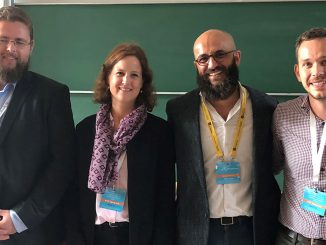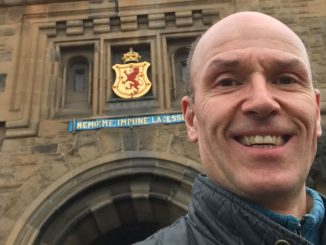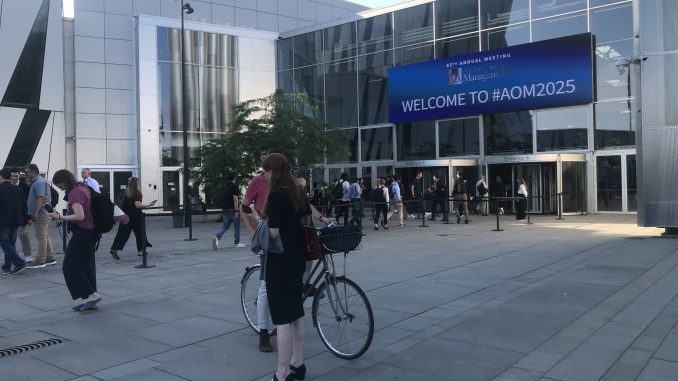
A reflection on participating at the Annual Meeting 2025 of the Academy of Management
Collaboration between nonprofit-organisations and companies is becoming increasingly important and valuable (Barnes, 2020). When choosing their workplace, employees are increasingly considering a company’s social commitment, aiming to contribute their knowledge, expertise and time. Beyond price, service and quality, customers are also factoring in human rights compliance throughout the production and sales processes, fair remuneration along the supply chain, and the support of socially disadvantaged people when making purchasing decisions for products and services (Hoffmann, Walchner, Dudek, 2021).
In relation to this development, I submitted after the first module of my DBA journey and according to a recommendation from Prof. Dr. David Wagner, Vice dean and Academic director of the DBA program (Doctor of Business Administration) at Munich Business School, at the beginning of this year in time with the official deadline a paper to present the topic of my research proposal Ethical scoring to value partnerships between nonprofit-organisations and companies at the Annual Meeting of the Academy of Management (AOM) from 25th – 30th July 2025 in Copenhagen, Denmark. End of March 2025, I was selected by the committee of the “Public and Nonprofit Division (PNP)”. So, I went on 24th of July 2025 by train to Copenhagen and started to present my first research results in a 4-hour workshop on the next morning in a conference room at Bella Centre.
The aim of my workshop was to discuss the human rights framework established by the United Nations, particularly in relation to companies. The United Nations Global Compact urges companies to uphold human rights, labour laws, environmental standards and anti-corruption measures. And the United Nations (UN) promotes global adherence to the Sustainable Development Goals (SDG).
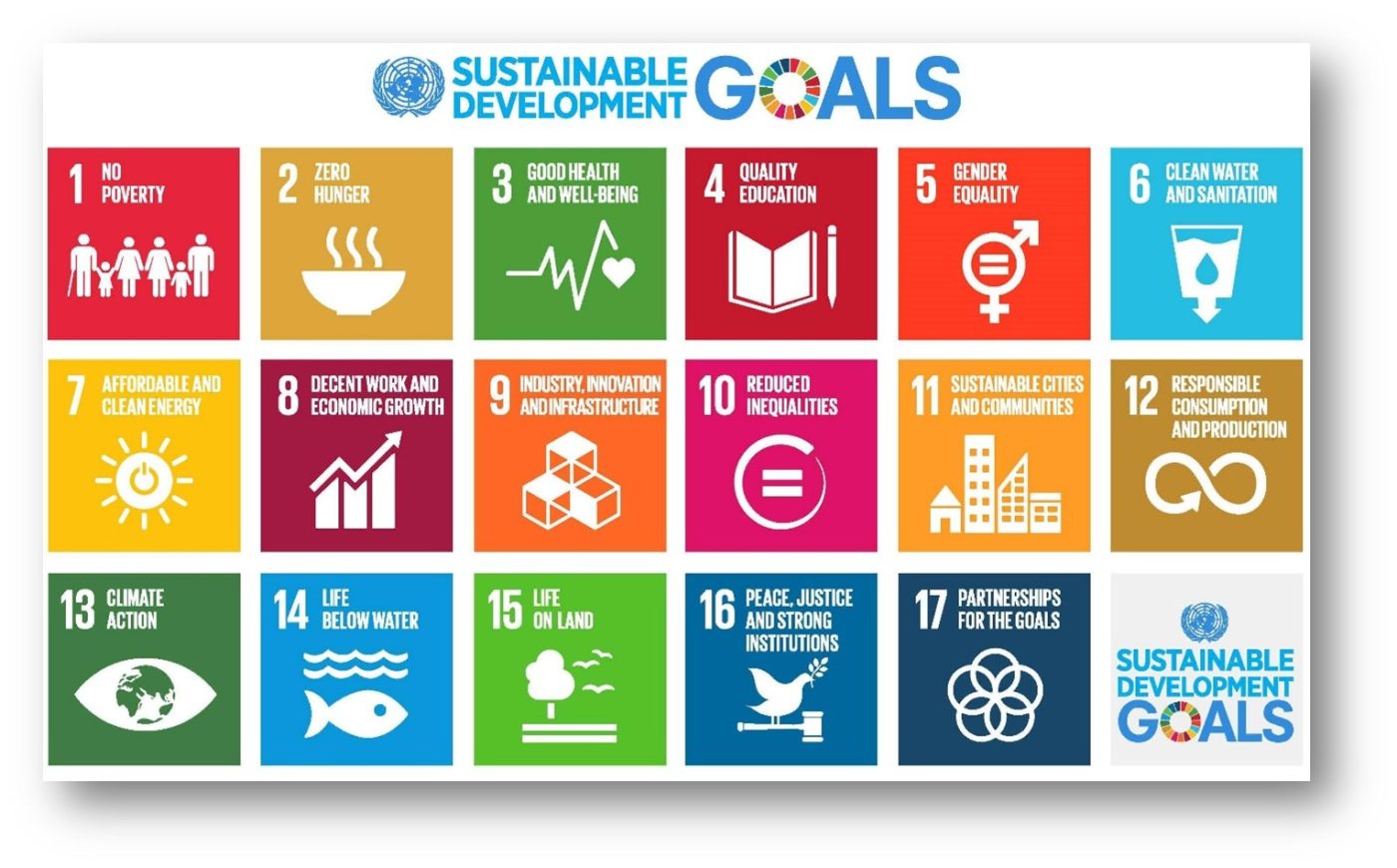
My workshop was interactive. After an introduction into the ethical screening model of my employer Handicap International, the attendees discussed ethical criteria to value partnerships between nonprofit-organisations and companies based on the human rights principles of the United Nations.
UN Ethical indicators:
- Human rights and basic labour rights violations
- Active contribution to a conflict
- Predatory or illegal business practices
- Production or trade of products harmful to human health
- Environmental damage with an impact on human health
- Commitment to social and environmental responsibility
The attendees presented at the end of the workshop their results to the whole group and developed a common framework for upcoming scientific research.
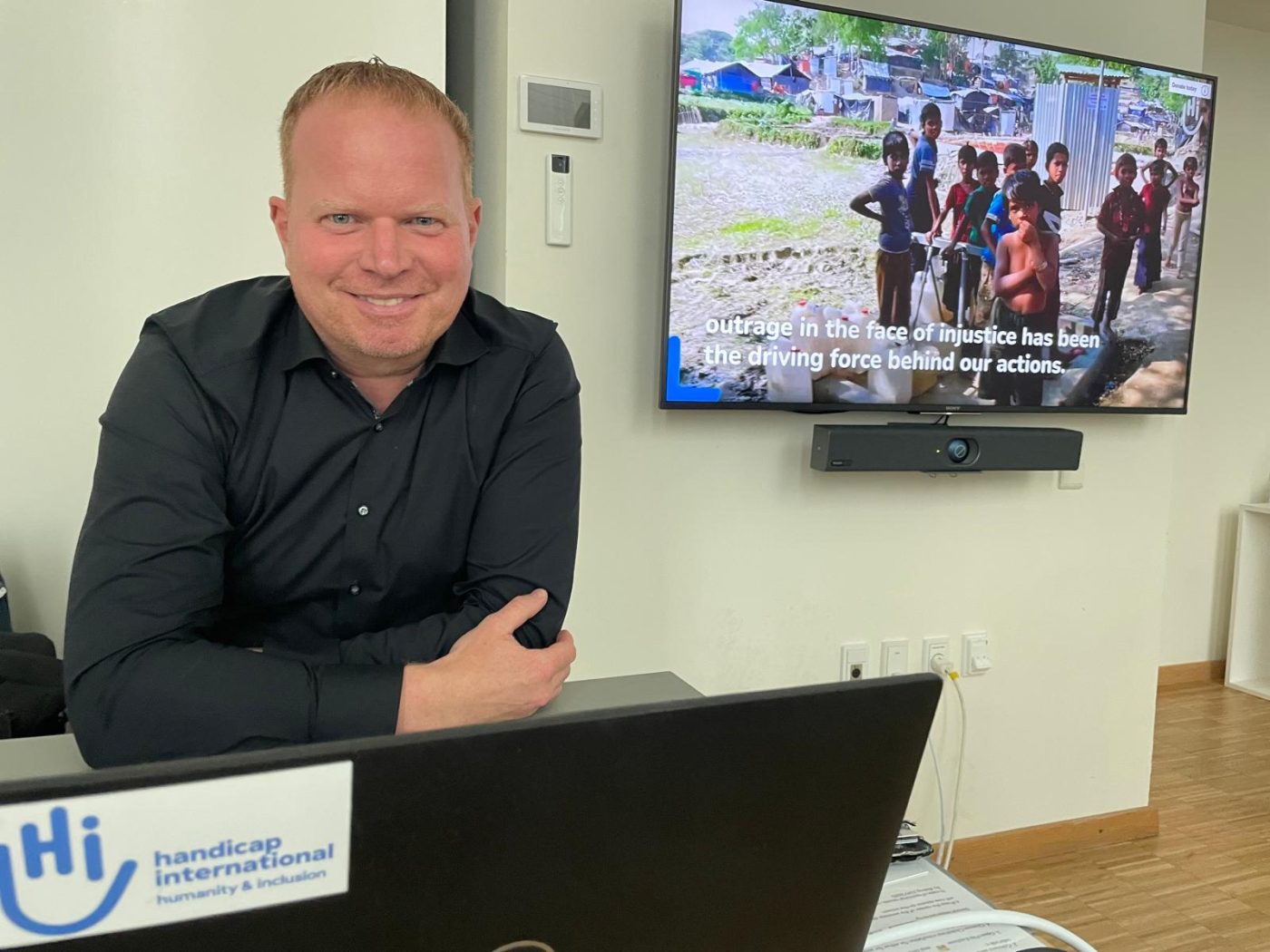
Furthermore, I was invited two days later by the well-known and high-ranking publisher Sage for a video-interview to “Social Impact” based on my workshop.
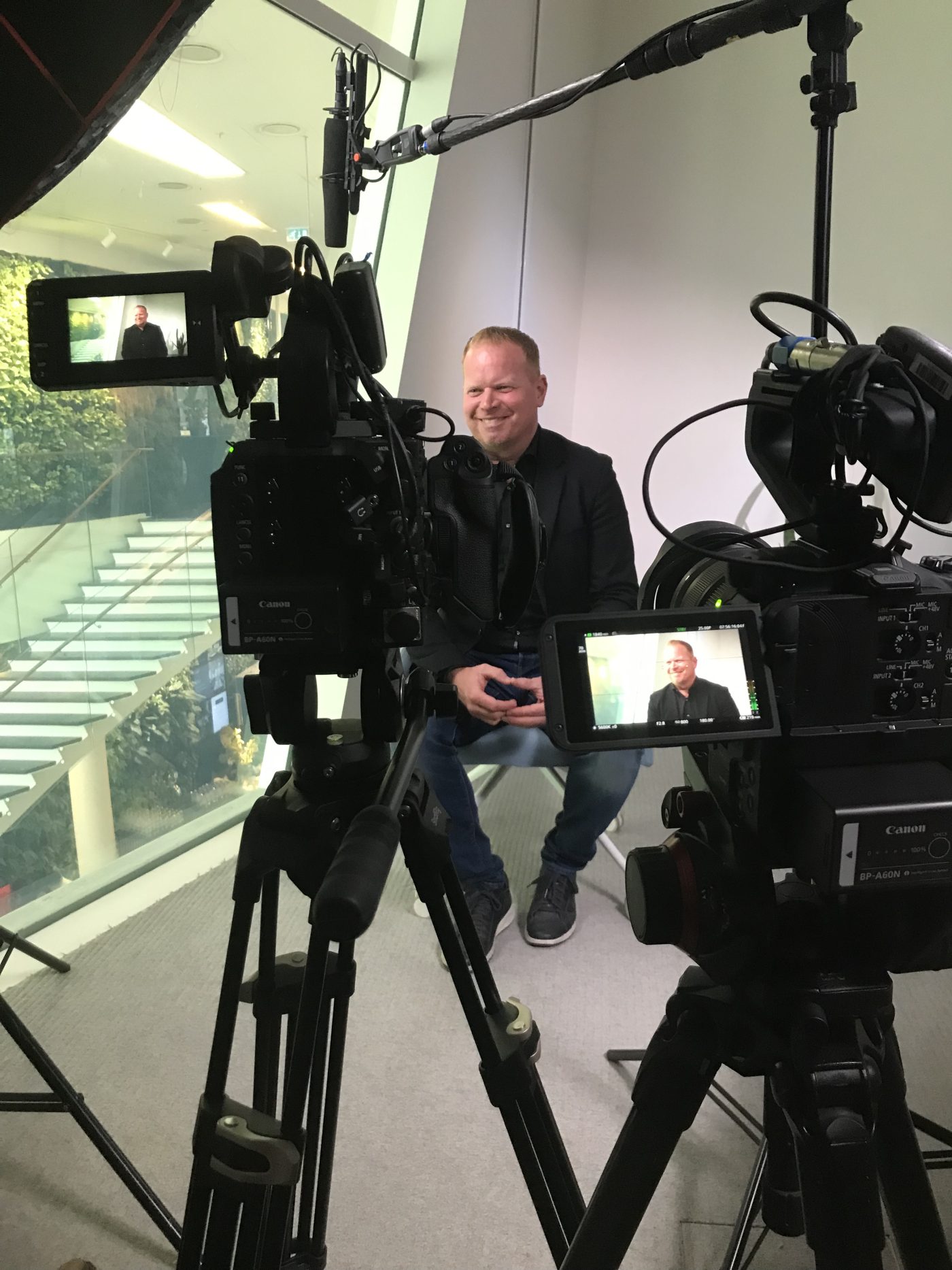
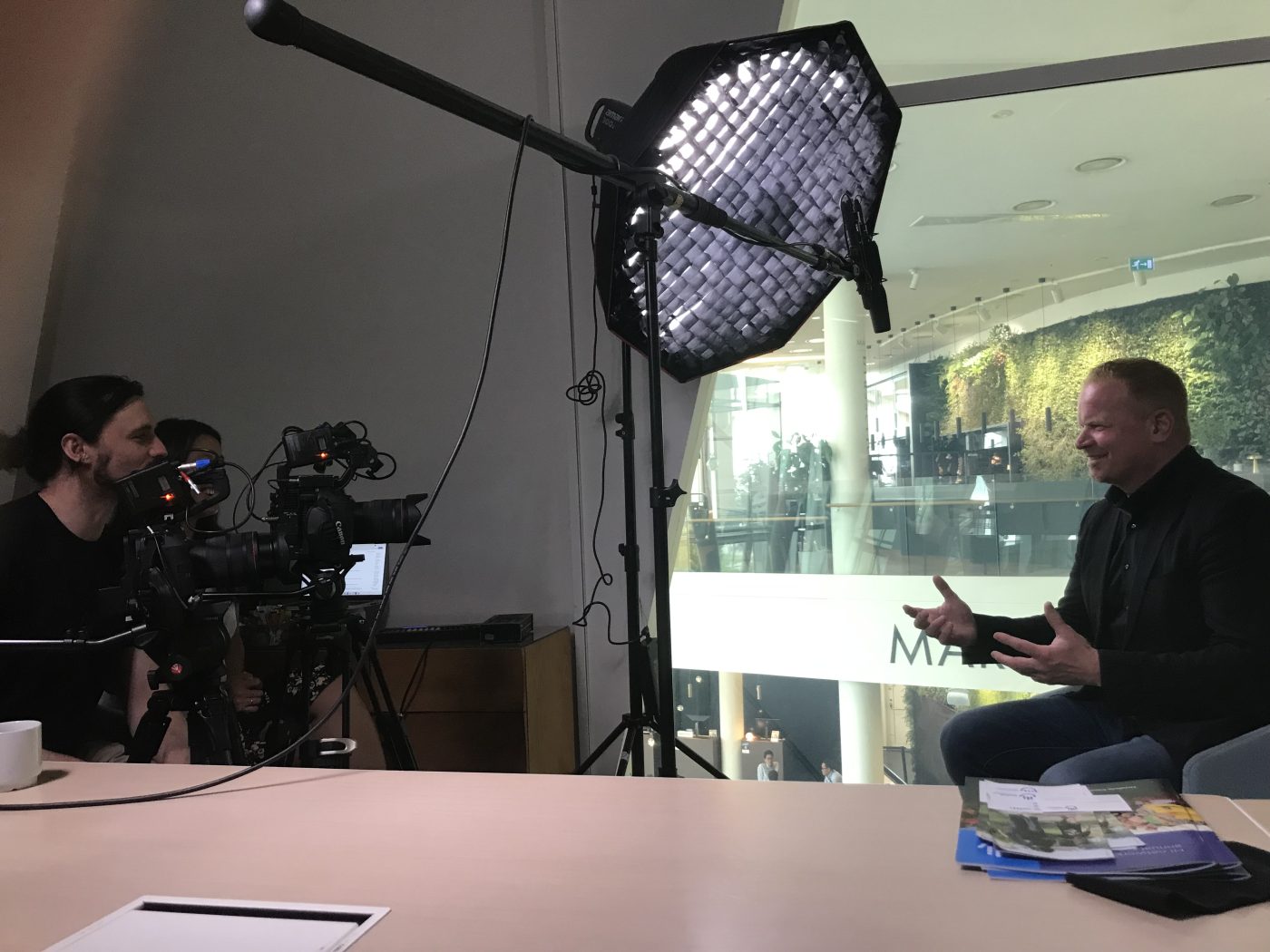
It was my first time participating on this interesting conference and I took advantage of the opportunity to interact with some of the about 13,400 like-minded AOM members and colleagues from around the world within a total of 3,936 sessions spanning research presentations, workshops, and networking events (so called “Socials”). And that’s all in the beautiful capital of Denmark with its famous history and starting point for many new human lives. This inspired me to extend my research to human dignity in economics. This is namely related to the GLOBE EU Conference “Charting the Path to Sustainable Economic Development” on 25th March 2025 in Brussels that I personally attended with Prof. Dr. David Wagner and my supervisor Dr. Dirk Dembski. The reason in participating also on this conference was that our planet and our society are changing: the society is drifting apart, with wealth concentrated among fewer people, rising unemployment, and increasing social inequality (Ripple, Wolf, Gregg, Rockström, Newsome, Law, Marques, Lenton, Xu, Huq, Simons, King, 2023). Global warming is already having significant consequences on all species, including humans (Felber, 2018). These issues stem from today’s economic system, which prioritises rapid and unlimited growth at the expense of human and natural resources. Humanitarian, social and ecological concerns are not adequately addressed in the current economic framework (Felber, 2019). One example of the impact of our economic system is shown in the yearly “Country Overshoot Days” (National Footprint and Biocapacity Accounts, 2025).
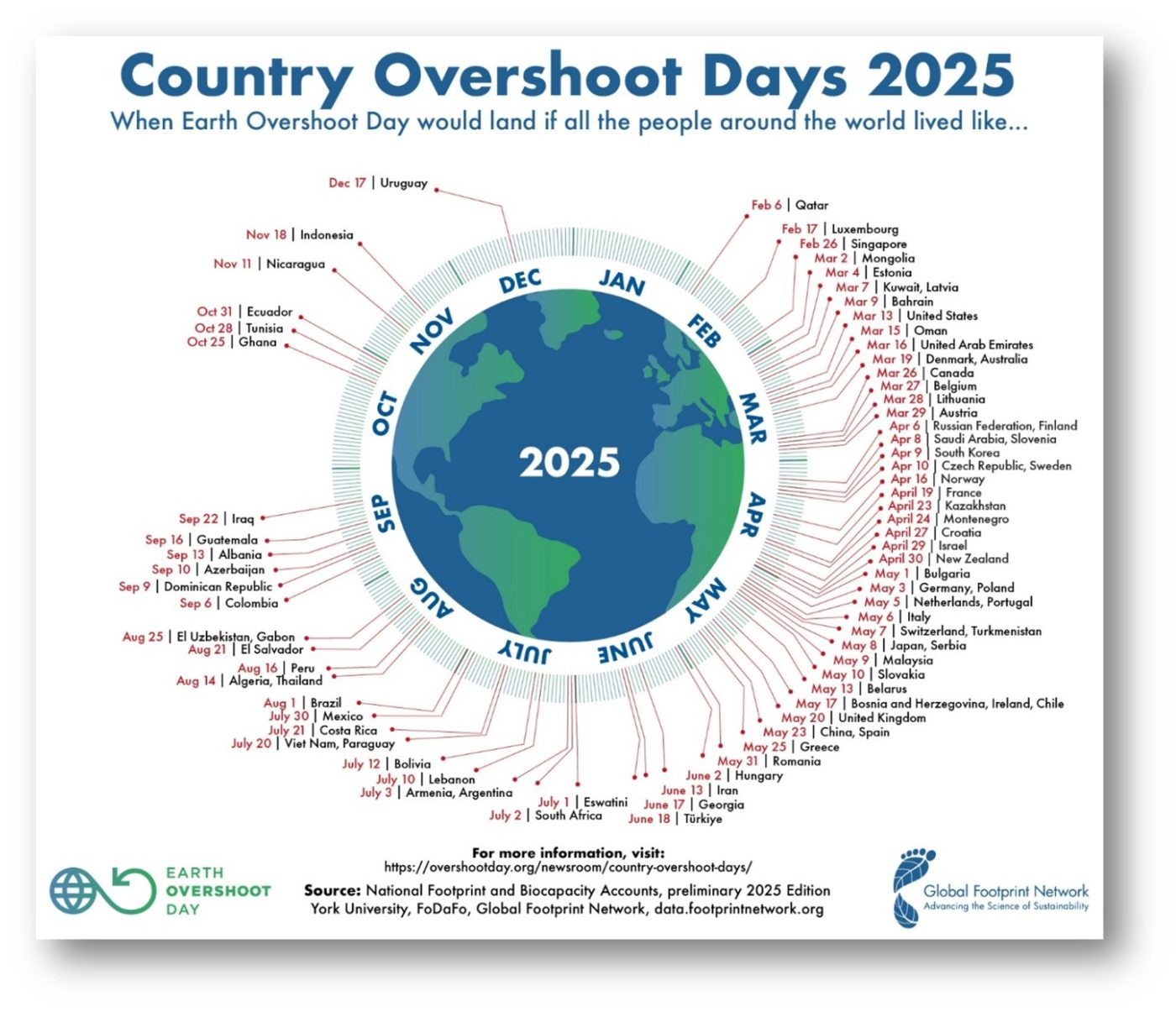
The Grand Challenges nowadays, such as the climate change and social division, indicate the need for a new mindset in business economics, as it is a key player in capital distribution and management direction towards ecological and social factors (Deinert, Scholz, de Hesselle, 2022).
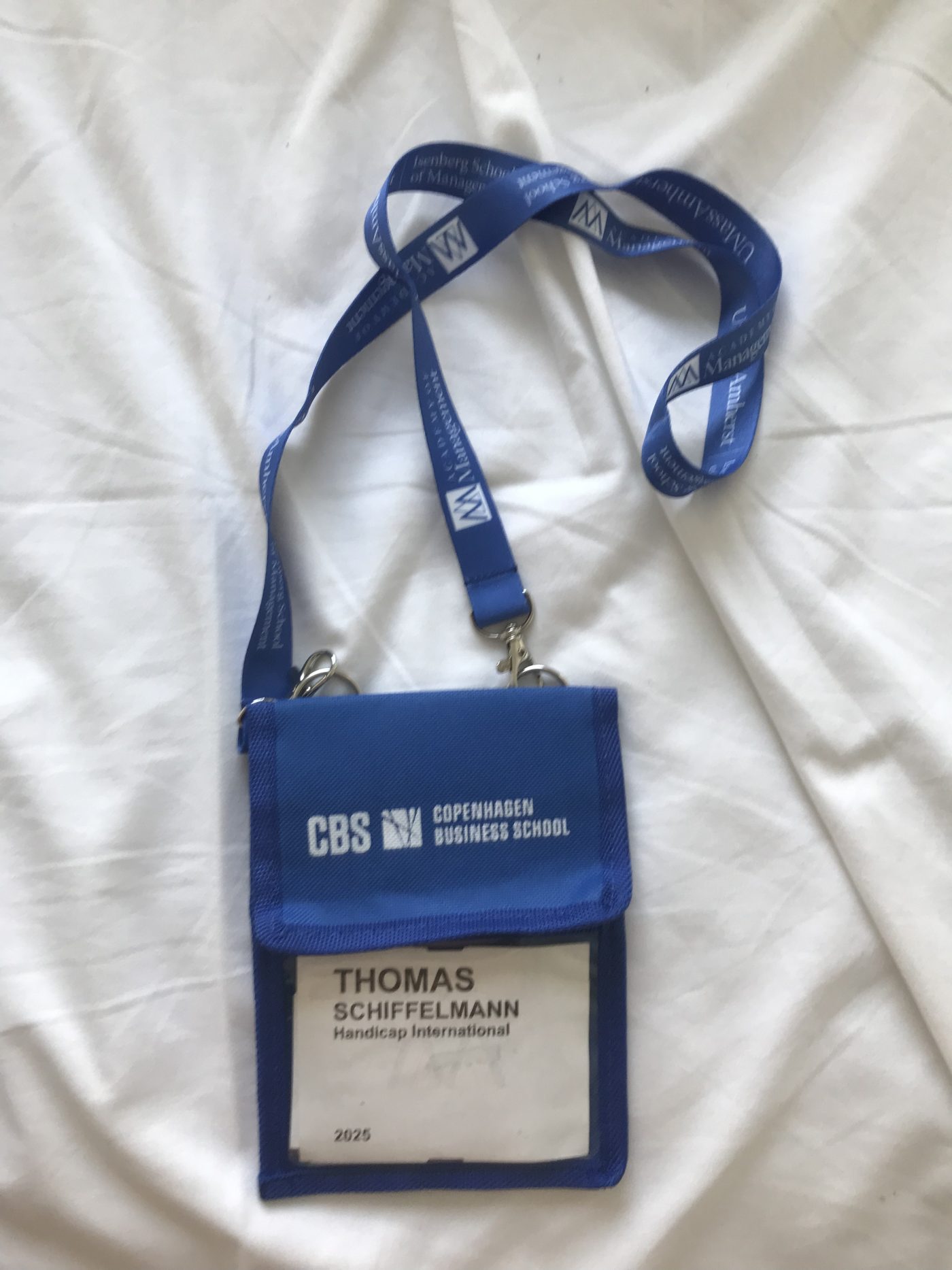
This is also the reason, why my employer Handicap International (Humanity & Inclusion) has been a signatory of the United Nations Global Compact since the August 2019. Handicap International / Humanity & Inclusion (HI) is a non-profit organization providing emergency aid and development cooperation in around 60 countries. We are committed to a world of solidarity and inclusion. We improve the living conditions of people with disabilities in the long term and support those who need special protection. Handicap International (Humanity & Inclusion) was founded in 1982 because of a feeling of outrage about the injustice faced by victims of conflict. The campaigns conducted by the International Campaign to Ban Landmines (ICBL) and the Cluster Munition Coalition (CMC), international NGO networks co-founded by HI led to the adoption of two international disarmament treaties: the Mine Ban Treaty (Ottawa, 1997), the first international treaty to ban a specific conventional weapon, and the Convention on Cluster Munitions (Oslo, 2008). In recognition of the ICBL’s significant contribution to global peace, its members were awarded in 1997 the Nobel Peace Prize.
The action of Handicap International (Humanity & Inclusion) is guided by four values: Humanity, Inclusion, Commitment and Integrity. The internal institution that follows the maintenance of HI’s value especially in partnerships with foundations and companies is the HI Institute. It is a foundation under Swiss law created in Geneva by decision of the Federal Board of Directors of Handicap International (Humanity & Inclusion) in August 2015, initially under the name “Handicap International Foundation”. The basis of the HI institute to value partnerships between nonprofit-organisations and companies is human dignity.
Handicap International (Humanity & Inclusion) considers that accepting or refusing corporate funding is an ethical decision. HI automatically excludes from its private sources of funding, companies working in the following four sectors:
- Investment in landmines and cluster munitions production
- Arms production or trade (mines, cluster munitions, conventional weapons, weapon components)
- Tabacco production or trade
- Oil extraction and production
The ethical indicators are applied indiscriminately to the company and where appropriate its subsidiaries and foundations. When a company holds a majority share in another company, the parent company is assumed to be responsible for the strategy and conduct of the subsidiary. The same is true for a group or corporate foundation whose governance and strategy are inherently linked to the company.
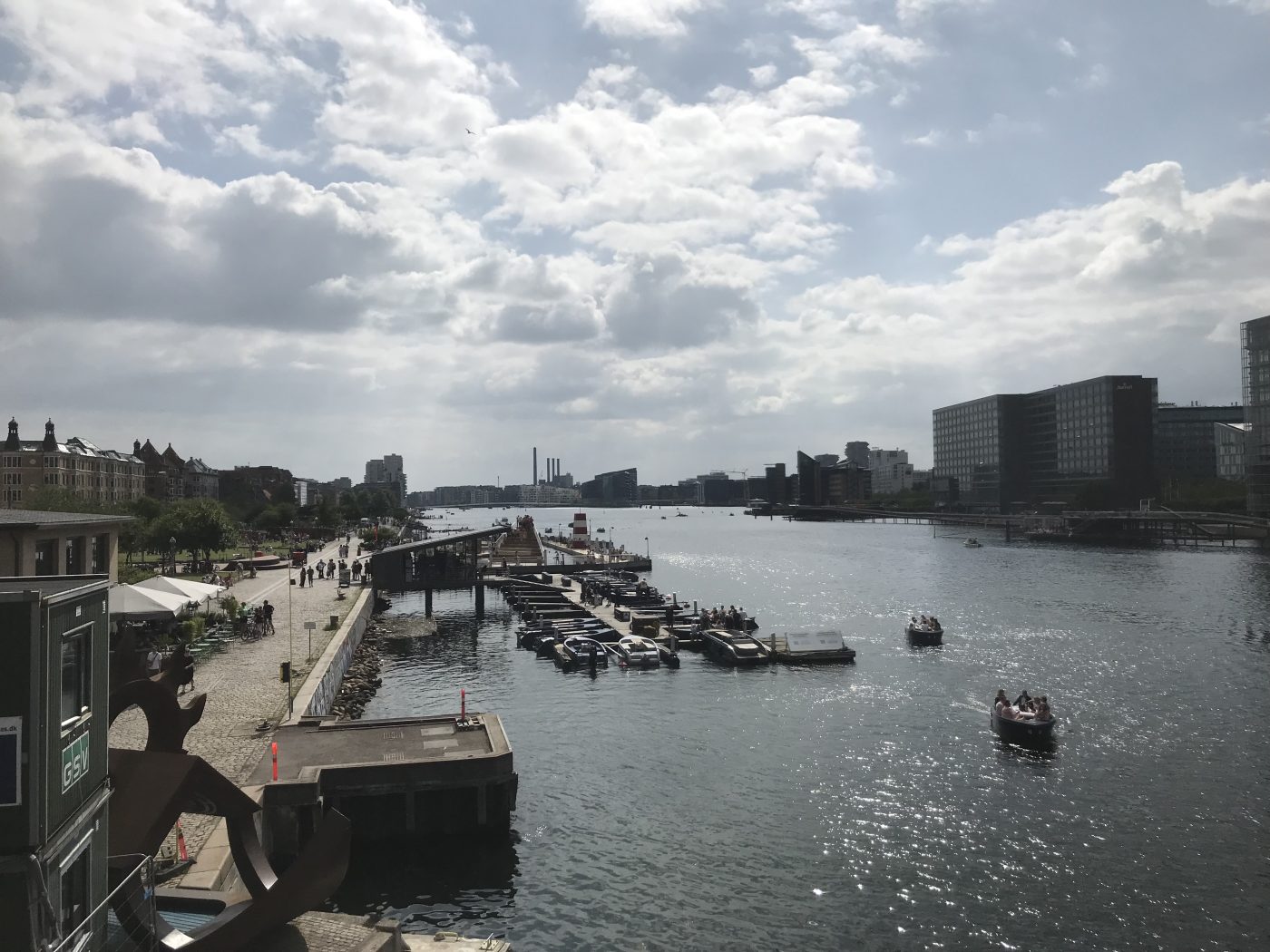
HI Ethical indicators:
- Practices that are discriminatory or otherwise contrary to HI’s principles of inclusion or that reinforces factors of exclusion
- Active contribution to a conflict (e.g. supporting or financing a party to the conflict, exacerbating tensions, war opportunism, expropriation or displacement of populations)
- A contribution to violations of human rights and fundamental labour rights
- Responsibility for the degradation of the environment going against the actions carried out by HI in the framework of its social mission
In summary, the Annual Meeting of the Academy of Management is the world’s premier event for scholarly engagement, and the largest gathering of management and organisation scholars in the world. It offers attendees a chance to expand research, network with colleagues, and disseminate knowledge addressing the 21st century’s most pressing challenges related to management and organisations.
Personal participation is absolutely recommended for everyone who wants to exchange ideas at a high scientific level, meet authors of papers and books as well as to discuss with professors and other students who have similar research questions. I encourage all students to visit conferences like the Annual Conference of the Academy of Management that open minds.



